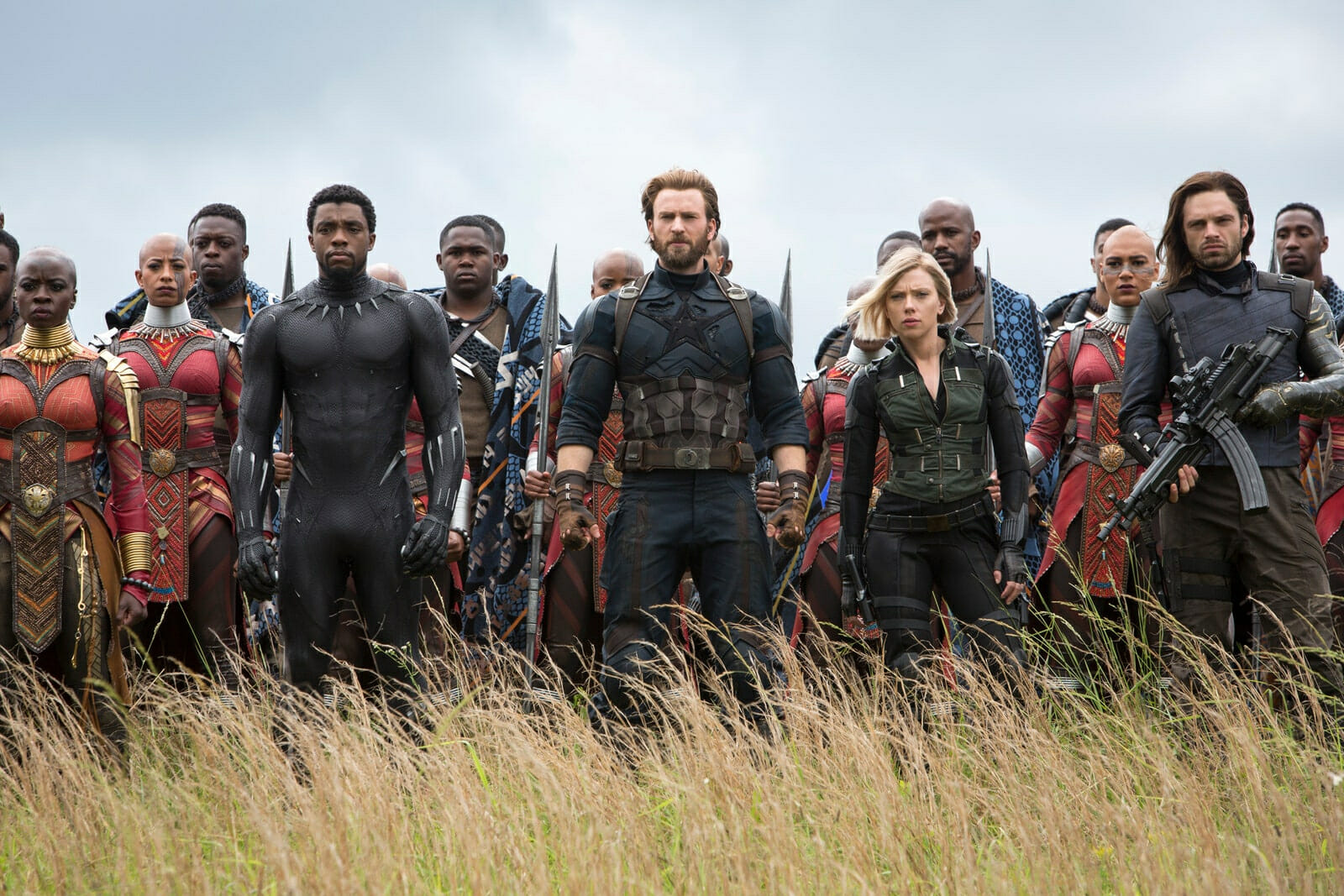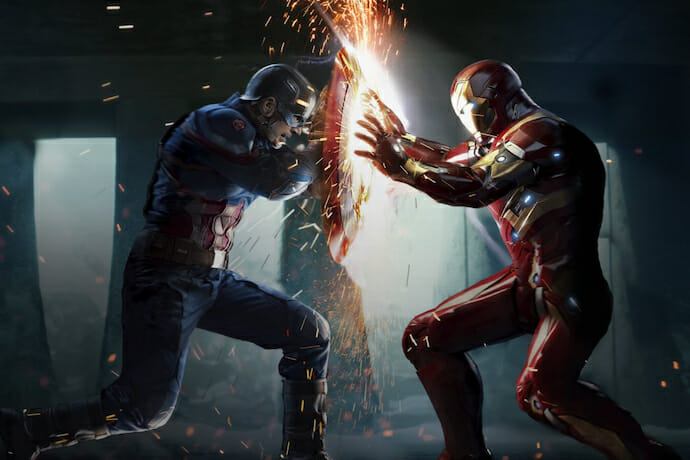
Does the MCU Have a Post-Pandemic Future Without Cap and Iron Man?
As a lifelong comic book aficionado, few things have brought me more joy over the past decade than watching the Marvel Cinematic Universe introduce the thrill of superhero storytelling to a wider audience. At a time when print comics are becoming an endangered species and brick-and-mortar comic book shops are teetering on the brink of irrelevancy, the MCU’s widespread popularity has done more to keep my nerdy way of life in the mainstream than any other pop culture phenomenon in recent memory.
Looking back on it all, from Iron Man to Avengers: Endgame, I couldn’t be more grateful. It’s when I look ahead, however, that my sense of optimism wavers. I’ll just go right out and say it: Despite the stratospheric success of Marvel’s One, Two, and Three Phases, I fear that Phase Four will be its last. And we might not even see all of it.

The reasons for my pessimism are manifold. First and foremost, I fear that the MCU’s all-important momentum has been lost. As much as the MCU owes its popularity to its dynamic characters, its careful balancing of light comedy with serious action, and its impeccable casting, the real secret to the MCU’s continued dominance at the box office has been its relentless pace. There has been much-ballyhooed talk in recent years about “superhero fatigue,” but in reality, the sheer volume of MCU releases is exactly what has kept its universe popular.
With the release of 23 films in 10 years, audiences essentially didn’t have enough time to become bored with superhero flicks. After all, how could anyone step away from the Marvel hype long enough to find another obsession when there was always another feature (honestly, probably two features) right around the corner? Add in the fact that each subsequent release was telling one part of a larger, integrated narrative that would culminate with the 22nd release, and it became impossible to step away.
Today, the situation is starkly different, and notably Stark-less. Although Disney couldn’t possibly have foreseen a global pandemic and the resulting delays, the fact remains that it will have been two full years since the MCU’s last theatrical release by the time their next film debuts. And that film—the release of which has been delayed by over a year—features a main character whose arc has already played out over the course of seven films and came to a final conclusion. Even worse, that conclusion came at the close of the MCU’s entire overarching story up to that point.
This is hardly the stuff to fuel a theatrical comeback. It’s hard to imagine that audiences will be clamoring to see a prequel featuring a character that they already know is dead and whose story cannot meaningfully contribute to the franchise going forward. As unfair as it may be, Black Widow just doesn’t have the same draw as, say, Doctor Strange or Captain Marvel. It offers nothing new after two years of nothing at all. Don’t get me wrong; I love Natasha Romanoff and I think the MCU is much worse off without her presence. But the time for a Black Widow movie passed us by about six years ago at least. This isn’t the momentum of 2008-2018. It feels almost like backsliding.

Second, as the multiple delays for Black Widow signify, the pandemic has forced the MCU to keep itself afloat via means other than theatrical releases. Disney, to its credit, has put forth an admirable effort in that regard by releasing three quality miniseries. WandaVision, The Falcon and the Winter Soldier, and now Loki have been met with popular and critical acclaim, and have no doubt boosted subscription numbers for Disney+. But three limited series do not a hype-train make, and they certainly do very little to inspire viewers to go to the movies.
Indeed, I fear that pandemic-era viewing habits have solidified streaming as the dominant method of visual media consumption in the United States and I seriously doubt that movie theaters will ever see pre-pandemic attendance numbers again. Releasing content on Disney+ may have been the MCU’s only viable lifeline during lockdown, but I fear it may have paradoxically diminished the demand for their upcoming theatrical releases by reinforcing stay-at-home viewing habits.
Finally, the MCU in 2021 finds itself lacking the two anchors of its previous Phases: Iron Man and Captain America. Those of you who watched The Falcon and the Winter Soldier will no doubt point out (spoiler alert!) that there’s a new Captain America in town, and you’d technically be right. But with all due respect to Sam Wilson (and he is due plenty), he has been dealt a terrible hand.
Gone is the clear through-line of the three previous Cap flicks, the rapport of the original Avengers, the shadow war between HYDRA and SHIELD, and the ever-lurking threat of Thanos. Steve Rogers was able to carry significant weight as the MCU grew and developed because the Captain America movies essentially showed us the history of its shared universe. Our new Cap does have a poignant moment in TFATWS where a forgotten figure from the MCU’s past fills him in on some crucial history, but that’s exactly the issue. Where Steve Rogers lived the history of the MCU, Sam Wilson only gets to hear about it secondhand.
Even more notably, we are now without Tony Stark, the character who single-handedly put the MCU together. This started right from the beginning. Remember the post-credit scene in The Incredible Hulk where Tony first recruits Bruce Banner? Of course you don’t; no one re-watched that one. Tony Stark’s role within the roster of MCU heroes was essential to the shared universe’s continued viability. He first drew the attention of Black Widow. He headlined the first post-Avengers flick. He co-designed Vision. He was a father figure to Peter Parker. Heck, he essentially commandeered a Captain America movie and made it about himself. Now, that unifying presence is gone, with no clear replacement to be found. If the MCU lost its heart with the retirement of Captain America, it lost its brain when Tony Stark died.
With its momentum stalled, its next big release feeling out of place, and its two biggest stars extinguished, the MCU’s path forward is as unclear as it has ever been. Will people show up in droves to see Black Widow, like they did for Avengers: Endgame? Can they be coaxed off their couches, pried away from the magnetic pull of Disney+, and bring back the glory days of 2019?
My gut says no. Of course, being the nerd that I am, I’d be thrilled to be proven wrong—and I very well could be. After all, the box office returns for movies like Godzilla vs. Kong show that there is real eagerness to return to movie theaters. And even if Black Widow disappoints, the next releases in line—Shang-Chi and Eternals—promise fresh new content. If they manage to ring in a new era of post-pandemic cinematic excitement, I’ll gleefully eat crow. But while there is surely a viewing of Black Widow in my future, I don’t foresee any black feathers.

